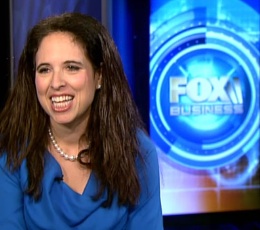Trivia Questions For: Vicki Salemi, Career/HR Expert & Author
 Vicki Salemi interview
Vicki Salemi interview
Today is another edition of TrivWorks’ “Trivia Questions For…” blog interview series, where I have the privilege of sitting down with leading national experts to discuss topics important to our audience – particularly, the latest trends & issues involving workplace productivity & happiness, office morale boosting, and corporate team building in New York City and beyond.
Because so much of what people who own or manage busy workplaces want to know involves how to create and maintain happy workplaces, I wanted to speak with somebody who has made a career of mastering and championing “soft skills” in the office – and Vicki Salemi is undoubtedly one of those people.
As a nationally-renown career/HR expert and author, Vicki has spent over 15 years speaking, coaching and writing about how to make workplaces better and more productive, providing valuable and timely information to millennials and college graduates, right up to seasoned corporate executives. Based on her unique position observing the cutting edge of the modern workplace, I am asking Vicki about how companies large and small can make their offices happier and more productive:
1. When recruiting new team members, employers seek specific criteria of their candidates as far as experience & expertise – however, being a “good fit” with an existing team is often overlooked, which many times ends badly. What questions should employers and employees alike be asking at the hiring stage, to determine if this is indeed a “good fit?”
Being a good fit is quintessential in order to make a solid hire. Experience and expertise only go so far – soft skills as well as rapport/chemistry are key. It’s not so much the questions that are asked but the courting process. An interview doesn’t have to be one grueling day. It can occur in a few stages – three interviews with hiring decision makers on the same day and then bringing the person back for a lunch interview with their potential peers. Get the candidate to make small talk, ask open-ended behavioral questions that aren’t related to the job in terms of one life experience in which they learned the most about themselves. You can truly get a sense of someone’s potential fit with the group based on their behavior in social settings and how they interact with the team.
2. At genuinely happy workplaces, the positive energy is infectious; conversely, negative work environments are toxic. In your opinion, what are the top 3 reasons why some workplaces are happy, and others are miserable?
One of the top reasons is based on the boss. If the boss is toxic, it’s immediately an unhappy place no matter how great the company. The next is the organizational culture. If people are glued to their cubicles all day and there’s no interaction, that can make it a challenging work environment to thrive in. Another one is leadership. Is top management transparent? Could you see them rolling up their sleeves to do your job for a day? Or are they talking heads? This typically coincides with the culture – if management is transparent and promotes social interaction, chances are the environment and culture are open as well.
3. Competitive employee compensation continues to be challenging for companies wishing to retain top talent in the current economic environment; what realities must employers understand about contemporary employee needs, to help retain high-performance people?
Employers know competitive employee compensation is key and typically drives top talent, unfortunately though sometimes they have the upper hand even when it comes to retaining high performance workers. If top workers are in an industry with an abundant supply of workers and demand for them is low (it all goes back to the basic economics principle of supply and demand), chances are that employee is going to stay put and get compensated whatever their employer pays them. On the contrary, in areas like health care and tech with shortages of top talent, employees will need to retain them and provide competitive offers and sign-on bonuses to get them on board and then keep them.
4. There’s an argument that office morale is irrelevant; people are hired to work, and if they don’t like it or aren’t producing, they can be replaced. How does this approach affect a company’s productivity, brand, and the bottom line?
Morale is never irrelevant – it can sink or swim a company’s productivity and consequently, their bottom line. Morale is everything – the happy worker is the productive worker. Companies that don’t agree with this principle are truly missing the point.
Now, Vicki has a trivia question she would like to ask YOU:
Who created the famous interlocking NY of the New York Yankee cap – and when?
Write your answer in the “Leave a Reply” box below. You can also connect with Vicki via her Website, www.VickiSalemi.com as well as Twitter @VickiSalemi.
***
Vicki Salemi is a career and HR expert, previously having worked in HR/recruiting management positions for upwards of 16 years, public speaker, career coach and journalist. She is the author of Big Career in the Big City and host of Score That Job on MediabistroTV. Ms. Salemi pens a career column for Metro newspapers and contributes to U.S. News & World Report, as well as writes the MediaJobsDaily blog on Mediabistro daily.
She’s also written for The New York Post, Cosmo, iVillage, ForbesWoman, CNBC European Business and more. Most recently she’s been spotted on Fox Business’ Career Accelerator show dishing her expertise on performance reviews, Millennials in the workplace, gift etiquette for colleagues and the scoop on placing office Super Bowl bets.